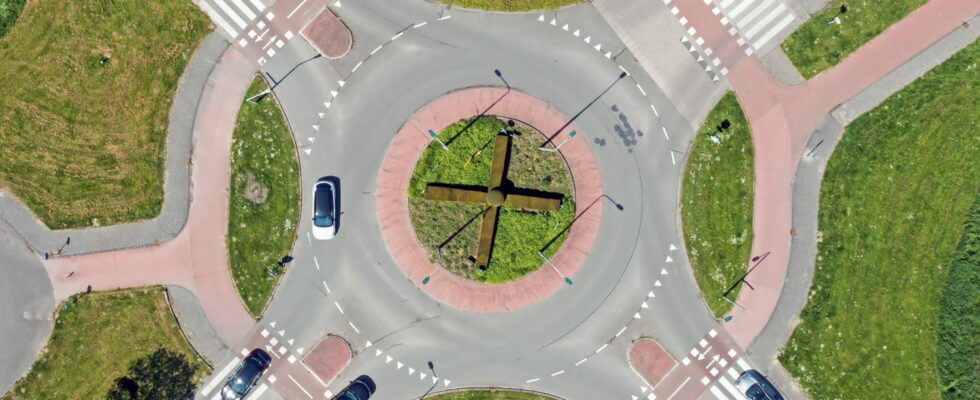A new type of roundabout has just appeared on French roads. Inspired by the Netherlands, imposes new rules to facilitate the circulation of bikes. Beware of motorists who do not respect them!
A wind of change blows on the French roads with the arrival of the “Dutch” roundabouts “. Inspired by the Netherlands, this redesigned development places cyclists’ safety at the heart of the system. While cohabitation between cars and bikes has often been a source of tensions, these new crossroads promise a significant reduction in the risk of collisions. Their particularity? They are surrounded by a large cycle path separated from the main road. In short, a real “belt” for cyclists, who, like cars, can circulate in a fluid and secure manner.
These roundabouts have another major novelty: the priority is given to cyclists, both at the entrance and at the exit of the roundabout. Concretely, motorists must imperatively yield the passage to bikes, even when leaving the roundabout. This change in rules could destabilize certain drivers accustomed to the traditional roundabouts, where priority applies mainly between motorized vehicles. From now on, getting out of a roundabout requires a careful look at the cycle path to avoid any attachment and respect this new priority.
Cities like Rennes, Clermont-Ferrand or Bures-sur-Yvette in Île-de-France have already taken the plunge and inaugurated these innovative infrastructures. The first assessments are rather positive: in Clermont-Ferrand, for example, no accident has been reported since the installation of one of these roundabouts, according to the Gazette des Communes. The development costs around 300,000 euros, an investment deemed reasonable in view of the security and comfort gains, especially for cyclists, but also for pedestrians.
The benefits of these roundabouts go far beyond security. They are part of a broader dynamic of promoting soft mobility, a crucial issue for French cities. By offering a secure framework for cyclists, these developments should encourage more people to ride their bikes, whether for home-work or daily trips. This transition to more ecological modes of transport is accompanied by positive effects on the environment, in particular by reducing greenhouse gas emissions.
However, adaptation will not be smooth for motorists, who will have to relearn certain driving habits. Slow down, yield the passage and show vigilance will become essential reflexes. A breach of these new rules could cost dearly: a fine of 135 euros and four permit points in the event of refusal of priority. Faced with these changes, the challenge is high: ensuring harmonious circulation between all road users, and thus sustainably transform our way of moving to the city.
